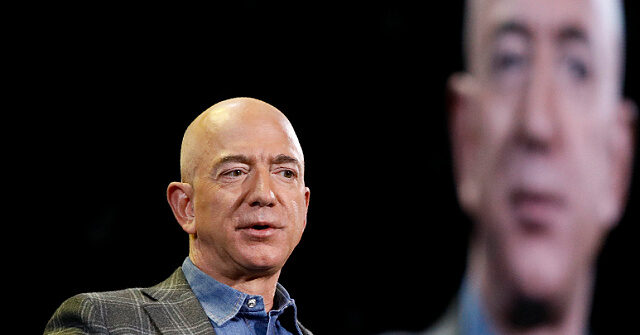In a recent op-ed published in the Washington Post, owner Jeff Bezos acknowledged the growing skepticism among Americans regarding the credibility and accuracy of the media. This admission came as the Post decided not to endorse a presidential candidate for the first time in 36 years, a significant move that has implications for Vice President Kamala Harris, who has not only missed the endorsement from the Post but also the L.A. Times and USA Today. By refraining from endorsements, Bezos suggests the Post aims to avoid perceptions of bias and maintain independence, crucial elements in an increasingly polarized media environment.
Bezos referenced a Gallup poll indicating that trust in the establishment media has reached an all-time low, with only 31 percent of Americans expressing confidence in the media’s ability to report truthfully and fairly. This statistic highlights an alarming trend, with the trust levels matching historic lows from previous years. In light of these findings, Bezos stressed the importance of improving the Post’s accuracy and credibility in order to restore public trust, recognizing that complaints alone will not suffice in this endeavor.
The issue of declining credibility is not isolated to the Washington Post; it is a broader problem faced by many media outlets. In their quest for sensationalism, various news organizations have inadvertently contributed to the spread of misinformation, as people increasingly turn to informal sources like podcasts and social media for news. Bezos warned that this trend risks alienating the mainstream media from the general public, emphasizing that previously, organizations like the Post achieved significant local readership. The implication is that a disconnect has emerged between elite journalism and the everyday reader, which could have dire consequences for the media landscape as a whole.
To combat these challenges, Bezos underlined the necessity of proactive change at the Post. He rejected the notion of allowing the paper to coast along without evolving, stressing that the stakes in the credibility battle are too high. He called for a multifaceted approach that combines a return to past journalistic standards with innovative new strategies. Bezos recognized that this journey would not be easy and that criticism would be a frequent companion, but he remained steadfast in his belief that such efforts are essential for the future of reputable journalism.
Moreover, Bezos emphasized that the ambition to present a credible and trusted voice originates from the importance of Washington, D.C., as the capital of a critical global player. He argued that there is great potential for the Post to be that influential voice, which would require commitment from both management and the dedicated journalists working tirelessly to uncover the truth. These professionals, according to Bezos, deserve recognition and belief in their commitment to quality journalism.
In summary, Jeff Bezos’s op-ed reflects a critical turning point for the Washington Post amidst an era of pervasive media skepticism. By opting out of presidential endorsements and advocating for a renewed focus on journalistic integrity, he emphasizes the need for credibility in a time when misinformation thrives. The analysis sheds light on broader issues facing the media industry, underscoring the importance of addressing public trust while striving to connect with a diverse audience. Through strategic changes and dedication to truthful reporting, the Washington Post aims to reclaim its position as a leading source of reliable news in a contentious media landscape.

